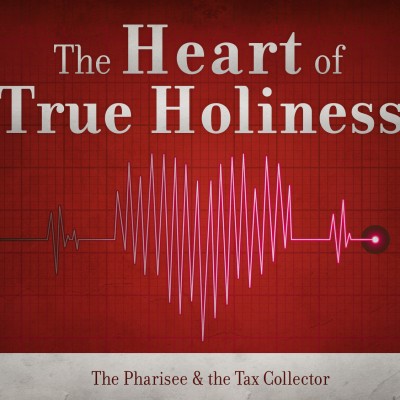Sermon Summary
This morning, we studied two passages of Scripture to help us understand what God expects of us on the issue of holiness. In our first passage, Luke 18:9-14, Jesus relates a parable about a Pharisee and a tax collector. You would expect the Pharisee—the respected, spiritually disciplined Jew—to be more holy than the despised tax-collector— the man whom nearly everyone in Jewish society considered to be morally bankrupt. But Jesus reveals that the tax-collector is more righteous than the Pharisee…because of his heart toward God.
Jesus gave us this parable to assure us, and to remind us, that it is in our struggle that we may be closer to true holiness than we think. The real threat to our spiritual lives isn’t moral imperfection, or even moral bankruptcy. The real threat is having a callused heart, and being blind to your own sin. The real mark of holiness isn’t outward conformity to a set of moral standards; the real mark of holiness is a pure and contrite heart—a heart that’s sensitive to God, a heart that never tires of grieving over sin or confessing sin. If holiness is primarily a matter of having a right heart attitude toward God, every one of us has access… if we are willing to humble ourselves, confess our sins, and claim the forgiveness that he offers us in Christ.
If we are to understand the true nature of holiness, we need to look at another passage of Scripture, John 17:14-19. By examining Jesus’ high priestly prayer we discover that true holiness begins with right thinking, not right behavior. Jesus warns us against making the mistake of thinking that we can be holy by separating ourselves from the world. In this passage Jesus is encouraging insulation, not isolation as the key to living rightly in the world.
But how do we do this? How do we insulate ourselves from moral compromise? How do we remain in the world without conforming to its value system? Because as you and I know, it is when we are out in the world, at school or in the marketplace, that we feel most threatened. That’s when the problems come. That’s when the temptations arise. It is living in the world that seems to be a detriment to personal holiness.
In John 17:17, Jesus asks God to “Sanctify them in the truth; your word is truth.” Here, Jesus is talking about a relationship with truth, and what is real to believers. Jesus is praying to God the Father, asking that He will sanctify—or set us apart—in truth. That is what the word “holy” means…to be set apart. To paraphrase Jesus: “Father, enable them to see reality as it really is. To really know you as you really are. To really know themselves as they really are. Therein, they are going to find freedom. They will know the truth, and the truth will set them free.” How will it set them free? They will come to believe that what Jesus says is actually true! Things like….
- He who is first, shall be last.
- Do not lay up for yourselves treasures upon earth…but lay up for yourselves treasures in heaven.
- Love your enemy.
We all know that Jesus said these things. Many of us have the head knowledge, but not the heart knowledge…as is evidenced in our behavior, which reflects what we truly believe. We can kid ourselves by conforming to a doctrinal confession in our mind, but our behavior will demonstrate our hearts. What Jesus was saying is this: Holiness begins with really believing what God says. It begins with really believing at a heart level those principles which are operative in the kingdom of God.
It is possible to conform outwardly to a code of morality without any of the infrastructure of belief behind it. So often, holiness in the Christian community is boiled down to not doing certain things, and to doing certain other things. If you attend church regularly, read your Bible a little bit, pray at meals, dress conservatively, and avoid the really gross sins, you are considered holy or spiritual. Jesus is telling us in this passage, that holiness doesn’t begin there. It may include some of those things, but it begins with how you think, and what you really believe, at the heart level. The holiness Jesus is seeking to develop in his people requires a radically new upside-down way of viewing life, completely opposed to the world’s value system. It involves a different set of values which make perfect sense to God’s redeemed, given an accurate understanding of the kingdom of God.
When you do sin, remind yourself that true holiness is rooted in a humble heart and a commitment to truth, not outward conformity to a moral code. And when you are frustrated by your spiritual failures, remind yourself of God’s mercy and grace.
Application / Challenge
- Remember that true holiness is rooted in a humble heart and a commitment to truth, not simply in outward conformity to some moral code.
- When you are frustrated by your moral failure, remember God’s mercy and grace.
- Don’t be like the Pharisee. When tempted to focus on the sins of others, take a hard look at your own life instead.
- If you know that you are not rightly-related to God (or suspect that you are not), place your trust in Jesus Christ. To let us know you’ve made a decision for Christ or would like to know more about a personal relationship with Christ contact us here. Mark the checkbox at the bottom of this form. We look forward to helping!


